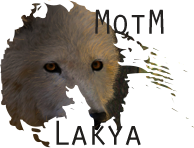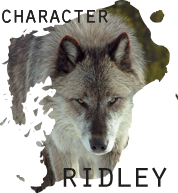Post by Aivlyn on Jul 31, 2013 18:40:39 GMT -6
HOW TO HAVE A CHARACTER
The basics of creating, starting out with, and playing a character.
- Creating a character
- Making a biography
- Making a first post, and then on
- Character Arcs
Having a new character is always fun. But getting it fleshed out and settled in is a concept that not many are really familiar with. Making sure it doesn't become flat, boring, or predictable is one of the hardest challenges that there can be with having new, or old, characters. It's something no one ever really explained to me, but something I have learned how to do better from experience and research. I'm going to explain some cool ways of making biographies, descriptions, introductory posts, and also how to make good posts with roleplay characters, and finally, how to keep everything moving. This information will also help you to not get lost or having writers block.
This is something I love doing every time I have a new character that needs to be made. Most of the time, when I need inspiration, I go look for a nonspecific song, book character, or other inspiration for what I want the character to feel like and act like on a basic scale. On the most simple level of personality, what should this new character be like? A good explanation of this is to find a theme, whether it be a theme song, or a character you like from a book, movie, or something different entirely. However, don't make an exact replica of any book, movie, or game character. A name, and a few character traits that resemble the inspiration are fine.
You can also make a character that is specifically a plot device, rather than it's own entity. Some one who brings out traits in another character, sets plot events in motion, or adds a needed piece for a pack. This tends to be harder, though. When this happens, you start utterly from scratch. What does this character need to accomplish in it's specific setting? How must it feel and act to make these things happen? What past should it have in order to justify how it acts and feels? These are questions you should ask yourself when making a plot-device sort of character.
The basics of creating a character, is finding an underlying theme, but making sure it is mostly original. A name and a few basic traits is all you want to have when it comes to using inspiration from a book, movie, or game. Everything else should be entirely different. Theme songs also help a lot, and you can play one or more of these theme songs while you think about this character, and even while you write their biographies. Characters can also be based around a plot, made to fulfill certain elements of a plot or story, and they should be hand crafted to do what is needed as exactly as possible.
This, I've found, is the first challenging step with making a character. When you create a new character, it is sometimes best to be simple and to the point. Make a personality that simply puts into words the basic essences of who they are and how they act. The history should explain why they are the way that they are. Everything to start with should be rather simple. About a month in you may want to go into more detail, which I recommend. Or, you may find things that no longer represent what this character has turned out like. If so, do edit it. Try to keep the history the same, and not to switch stuff around to explain random traits this character has gotten from nowhere.
When making a personality, I normally first list out traits of the character in list-form. First this is very basic and there are only a few words per trait. After I feel satisfied with the traits and think this character has enough, I'll go in and refine them, keeping it in list form. Then, finally, using the list as a guide I will write out the personality, then going over it one last time to proofread, add to, and edit it.
This can also be used for the history. Write out the basic timeline of events in a list of the major events. Then, go through and refine it, adding more detail and a few more less-important events and details. Using this list as a guide, write the story of the character's past. Make sure you try and justify the personality of the character. Such as, a character being quiet due to it being pushed around when it was younger. Or, a character being angry and hot headed due to being raised in a more hostile environment.
If a physical description is asked for, then this format also works. Make a list of physical traits, refine the list, and use it as a guide to write it out into paragraph form.
Overall, lists make everything flow. Try to make the events in a list go through a logical sequence. Chronological for history, and head-tail for physical description, and for personality you can go from the most docile and kind traits to the more violent and feral ones. Finally, always avoid conflicting traits, those will confuse you and everyone reading the biography, and will make the character much harder to play.
It's one of the most important posts you make, in my opinion. Though future members will not see this post, and some may not pay it much mind, if there is any post you should pour effort into it should be this one. This posts should accomplish several goals; get you used to the character, establish the character, and introduce the character.
A good way of accomplishing all three decently is to use the same organized strategy, but a bit tweaked. Write out your character's most basic personality and also physical traits that you want established and explored in the first post. Expand on it and add detail, and then finally write the post using this list as a guide. Writing it out right off the top of your head would definitely work, however, if you be very careful with it you will likely make your character much more solid. While you make the first post, also keep in mind your goals. You want to get used to playing the character and create a firm personality in your head, so you are less likely to get lost in the future. You want to set in stone some personality traits, and also explore them and how your character acts in a few simple situations. And finally, you want to give others something to notice and reply to, trying your best to give a few physical and spoken hints to other characters so they are also introduced to the character.
Introducing a character also spans after the first post, a couple posts after it may help to stick to this format in order to further ground the character.
Now that you have a better understanding of how to establish and play a character, there is one last thing you will have to do. You do not, ever, want a character to stay the same forever. This will make your character one dimensional, occupying space, but not time! Have your character progress, develop, learn, and change.
First, your character might start with some ambitions or flaws. Slowly, this character may work on them, improving on them. Make sure these things happen over TIME, not just in the span of three little posts. An arc is a progression from one state to another. When having your character improve, also make sure you don't turn them into a perfect goddess. Keep their flaws, but letting them become better wolves is a great way to keep them moving.
As well, on the opposite side of things, they can get worse. They can gradually get sick or begin to fail at their ambitions or talents, whether it be due to physical or mental handicaps. They could become too distracted, jumpy, or lazy to succeed at hunting. They could get an injury that permanently causes them to be unable to hunt. However, make sure there is a good reason for this when it is something mental. And if it is physical, you should decide whether it is something slow and progressive that cannot be reversed (blindness, arthritis, ect), or something temporary that will either fully go away (light sprain or pulled muscle) or something that will heal, but still hamper future performance(broken bone).
Characters should also learn. They can learn how to love, how to hate, who they hate, who they love, and they can also learn things that change how they think, feel, and act. They can go through trauma and learn to fear, and eventually overcome it as they begin to move on. They can be hurt mentally and then hate, but learn to be kind again as time goes on. Simple things, small arcs. Or, larger character arcs. It all depends on what you want the character to do.
Finally, characters should always change. Whether it be from progression, injury, learning, experience, however. They should never be static, or stationary. If you need help thinking of how to initiate these things, think of yourself. How have you changed? What caused those changes?











